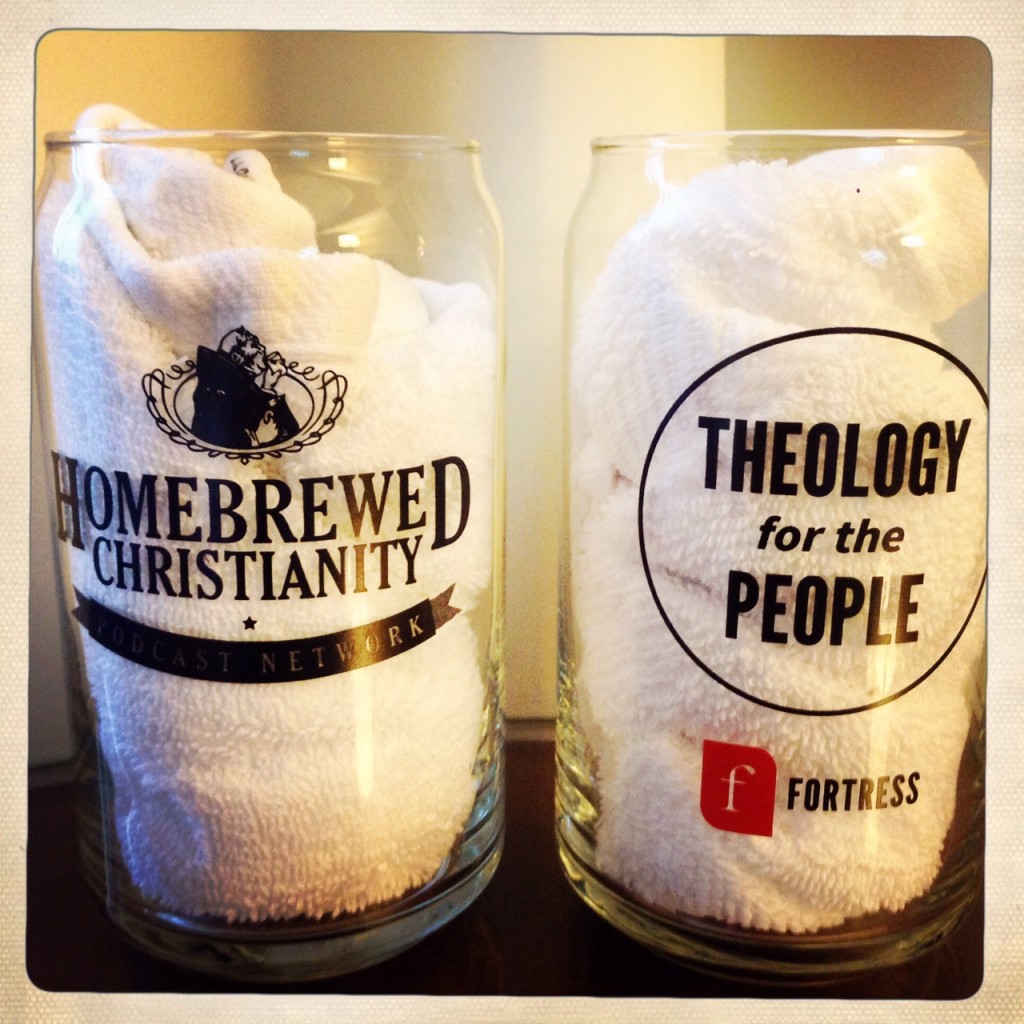A couple new reviews of The Teaching of the Twelve were posted this week. The first, by Wes Ellis, is positive. Wes particularly likes the modern translation of the Didache that we’ve provided, and calls that the best chapter of the book. He goes on to write,
How does this fit in with Jones’ other works?
This question only needs to be asked because Jones usually writes about the Emerging Church and he usually stays away from such involved studies of ancient texts. So why does he care about the Didache? Jones says himself that “it represents a lost version of Christianity, and one that many of us long to get back to” (page 121 from the Epilogue). Jones, in all of his endeavors, is on the lookout for not only a fresh perspective but also for a way of getting back to the roots of the Church and he seems to have found both in this ancient forgotten text and in the community call the Cymbrogi.
For anyone interested in the Didache, this is a great read.
The second, by Bob Hyatt, is less positive.
Bob and I have had our theological and ecclesiological disagreements over the years, so it didn’t shock me that he thinks that I overplayed the Didache’s relevance to the modern church in the book. He writes,
The Didache, while interesting, is just not all that great. I mean… it’s a fascinating glimpse into early Christianity but not terribly poetic, insightful, or inspiring… it’s largely a list of do’s and don’ts.
He goes on to write that the New Testament is far more interesting and rewarding, and that without the New Testament, the Didache would be a pretty uninspiring document. And I agree. For instance, Trucker Frank refers to the Didache as the Rosetta Stone of the New Testament for him and his community. What I think he means by that is the Didache serves to give them an extrabiblical lens, written contemporaneously with the New Testament, that allows them to better understand the New Testament.
I take no exception with Bob to this point. But then he goes on to write,
While I very much appreciate the desire to wrestle with early conceptions of Christianity, to study, discern and live out orthopraxy, I can’t help but think: Are these folks taking the New Testament this seriously? And if not, why not? Regardless of your view of inspiration, high or low, or whatever, the New Testament is AT LEAST as authoritative as the Didache, right?
And I don’t know how to read this except as a jab at my own view of scripture. What I think this betrays is that Bob brought his own biases against my previous work into my book on the Didache, because nowhere in The Teaching of the Twelve do I even come close to implying that the Didache is “inspired” or authoritative in the same sense as the Hebrew and Christian scriptures. I don’t know exactly to whom Bob is asking his rhetorical question, but if Trucker Frank or I are included in “these folks,” then I can assure Bob and any other doubters that, yes, we take the New Testament seriously. In fact, we take the Old Testament seriously, too.
Finally, to the criticism that my book paints the Didache community as practicing some pure, unadulterated Christianity that has since been corrupted by 2,000 years of churchianity, I don’t imply that in the book, either. In fact, unlike another one of Bob’s foils, I am far more likely to quote a medieval or modern theologian to help me explicate scripture, than I am to state that the Bible itself lays out a clear picture of ecclesiology.
But I do think that the Didache gives us an intriguing glimpse into the very earliest Christian church, one that didn’t even yet have (many of) the biblical texts nor any clergy class. It’s unlike all of the other ante-Nicene writings, in that it is uninterested in doctrine, and it is neither Gnostic (like the pseudepigraphical Gospels) nor apocalyptic (like the early martyrdom narratives). That doesn’t make the Didache inspired, but it does make it unique. And, as such, it is extremely important to our understanding of the first Christians and, consequently, of the New Testament.
My thanks to both Wes and Bob for posting reviews. I look forward to more people reading and interacting with the book.
Online Resources:
- Buy the book at Amazon for $10.79
- Buy 3 or more from Paraclete for a discount
- Read our full translation of the Didache
- Listen to me read the Didache (17 minutes, mp3 file)
Previously: Adam, Thomas, and me on chapter one. Amy, Ted, and me on chapter three. Holly, Tripp, and me on chapter four. Mike and me on chapter five. Brother Maynard and me on chapter six. Mike, Greg, and me on chapter seven. Luke and me on the epilogue. Jonathan and me on the importance of the Didache. Dwight and me on the Didache and the creeds.











